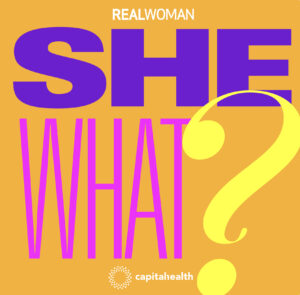Every now and then, a news story unrelated to my life will reside in the periphery of my mind, until I see it in the headlines for what seems like the hundredth time and I think to myself, maybe I should pay attention to this.
GamerGate is just one of those stories.
What is GamerGate, and why should I care, you might ask? Good questions. GamerGate is a movement in the gaming community—wait, keep reading, I promise it’s important to you—that has resulted in hate-speak and violent threats toward specific women associated in the industry. Unless you’re part of the gaming community, the controversy may not be on your radar—but it should be. If you haven’t gone down the rabbit hole that is the GamerGate movement, here is a concise look at what’s going on and why you should care about it.
What is GamerGate?
Ostensibly, GamerGate is about promoting ethics in gaming journalism, but somehow a vocal crew turned it into a hatefest towards women.
The controversy was ignited by a break up, when Eron Gjoni penned an online screed about his ex-girlfriend Zoe Quinn, co-creator of the groundbreaking and very popular game Depression Quest back in August. In it, Gjoni stated that Quinn had traded sexual favors for positive reviews of her game, which created an outrage in the video gaming community, who decried it as evidence of unethical behavior among video game journalists. Video game journalists were reluctant to comment on the post and when early GamerGaters posts on social media sites and YouTube videos were flagged, this fueled the idea that there was a massive cover-up going on.
In response, GamerGaters had long serious discussions about the future of journalism and issues of privacy on the web. Nah, just kidding. Anonymous supporters began digging into Quinn’s personal life, hacking her Tumblr, posting violent message, even releasing her address to the masses. She fled her home and hasn’t been back since.
Anger spread to other female game developers like Brianna Wu, who had to go into hiding, and feminist media critic Anita Sarkeesian (pictured above), who canceled a talk at the Utah State University after the school received threats of a mass shooting if she appeared. And after actress-gamer Felicia Day wrote on her blog about her reluctance to speak out about GamerGate for fear of being doxxed, her home address was released on online. Yet, when Chris Kluwe, a former NFL player and avid gamer, blasted GamerGate, well nada.
What is doxxing?
It’s basically when personal or corporate accounts are hacked and made public. Wikipedia defines it as:
Doxxing is the Internet-based practice of researching and publishing personally identifiable information about an individual. The methods employed in pursuit of this information include searching publicly available databases and social media websites like Facebook, hacking, and social engineering. It is closely related to cyber-vigilantism, hacktivism, and cyber-bullying.
Anonymous is notorious for this (they introduced the term to the mainstream).
Where is this largely taking place?
On blogs and social media like Twitter, where the #GamerGate is popping up all over the place.
I have no interest in gaming. Why should I care about this?
You may not know Lara Croft from Jill Valentine, but you should know about GamerGate. The movement, some argue, exposed deep-seated misogyny in the gaming community—which was predominantly been composed of young men—towards female developers, journalists and critics.
In an article in the New York Times, reporter Nick Wingfield writes of the GamerGate movement and its attacks on women:
While the online attacks on women have intensified in the last few months, the dynamics behind the harassment go back much further. They arise from larger changes in the video game business that have redefined the audience for its products, expanding it well beyond the traditional young, male demographic. They also reflect the central role games play in the identity of many fans.
Look, I’m not going to comment on whether or not GamerGate has a valid point about corruption in gaming media. I’m not a gamer; I don’t know enough about the community to make statements either way. However, from an outside perspective looking in on GamerGate, all I am hearing is hate towards women. All I am hearing is a woman’s sexual history becoming a matter of public discourse to explain her career success. All I am hearing is female designers and game critics having their privacy violated and safety threatened. And that scares me. And it should scare you, too.
If you look at it from a big-picture perspective, women are making in-roads into a traditionally male dominated world, and the response is harassment and threats. What is this 1919?
In an op-ed in the New York Times this Sunday, video game critic and contributor Chris Suellentrop talked to Leigh Alexander, who wrote a column critical of gaming culture on the website Gamasutra that sparked GamerGaters to pressure Intel to pull its advertising from it (which is did). She told Suellentrop that the hard part was not the abuse, but:
She’s more discouraged by her peers at websites that took two months to denounce GamerGate. Others have yet to make a statement at all. Some of the participants in the community of intelligent writers and designers who think and talk about video games in print and online, on websites and social media networks and podcasts, are being cowed into silence.
In particular, if the large companies that make video games remain quiet, they risk allowing GamerGate to win the debate over whether diversity—of people, of ideas, of games themselves — has a place in their culture.
A vicious anonymous minority silencing people from speaking out about injustice is never a good thing for social progress.
So are women completely dogged by this community?
Nope. New York Comic Con received great praise recently for its inclusion of women and minorities, including a panel on The Future of Female Fandom, and Amanda Marcotte wrote for Slate that the convention featured signage that discouraged sexual harassment, including “Cosplay is not consent.”
When will “gate” be retired from the vernacular as an indication of controversy?
Dear God I hope soon.






